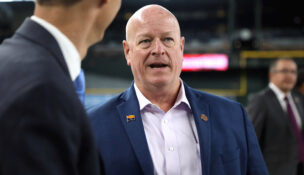‘Unconstitutional’ bill to limit expert testimony wins preliminary OK
Arizona Capitol Reports Staff//March 9, 2007//[read_meter]
‘Unconstitutional’ bill to limit expert testimony wins preliminary OK
Arizona Capitol Reports Staff//March 9, 2007//[read_meter]
Lawmakers approved a proposal to give judges more latitude to exclude expert testimony during a trial despite being cautioned that the measure might be as unconstitutional. The bill requires the...
No tags for this post.

















